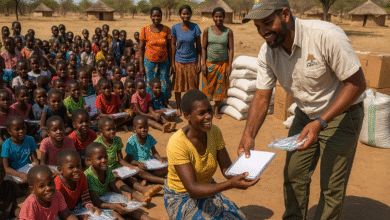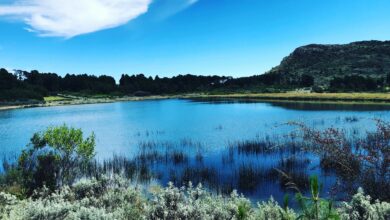Environmental Conservation and Eco Preservation: Rural Success Stories in Zimbabwe

In the heart of Zimbabwe’s vast landscapes, communities are rewriting the narrative on natural resource management with inspiring success stories. Rural initiatives not only protect the land but also serve as a beacon of hope for future generations. In recent years, local leaders have embraced environmental conservation as an essential tool to overcome climate challenges and economic setbacks. Furthermore, their efforts underscore a commitment to eco preservation that transforms isolated communities into resilient hubs of sustainable living.
Eco Preservation Innovations in Zimbabwe
Rural communities can pioneer innovative practices that balance economic development with the care of natural heritage. For instance, community-led projects in regions bordering Hwange National Park and Matobo Hills can strengthen efforts to protect wildlife and preserve unique ecosystems. Moreover, these initiatives must combine traditional knowledge with modern techniques to address deforestation and illegal wildlife poaching. Dedicated locals can engage in environmental conservation by restoring degraded lands through reforestation campaigns. The success of this not only boosts eco preservation but also reinforces the resilience of the entire ecosystem.
Empowered Green Stewardship in Rural Communities
Local leaders and youth have embraced the principles of green stewardship, creating community-managed conservancies that yield remarkable benefits. For example, the CAMPFIRE program (Communal Areas Management Programme for Indigenous Resources) has empowered people to take ownership of wildlife resources. Additionally, these programs create incentives for protecting natural habitats and driving local income generation. Rural households have observed more stable incomes as tourism and ecotourism increase along with community pride. This is by involving themselves directly in nature conservation. Consequently, by practicing environmental conservation, they deliver both socio-economic and ecological dividends that are echoed in regional policy decisions.
Nature Conservation in Action: Community Triumphs and Challenges
Across Zimbabwe’s rural settings, inspiring advances in nature conservation are overcoming long-standing environmental challenges. In areas near Victoria Falls, environmental conservation efforts have improved water quality. They have also reduced pollution through community clean-up programs and stricter resource management. Meanwhile, local schools integrate environmental education into their curricula. This fosters a culture of proactive eco preservation among the young. Furthermore, residents collaborate with international partners such as Positive Eye News to bolster legislative reforms and funding for protection projects. As a result, environmental conservation becomes the lynchpin that connects community well-being with sustainable natural resource management. In this way, these communities not only use environmental conservation as a guiding principle but also achieve tangible improvements in biodiversity and eco preservation.
Overcoming Challenges and Paving the Way Forward
Despite many triumphs, challenges such as rampant deforestation, unsustainable agricultural practices, and illegal poaching persist. However, these obstacles have galvanised communities to form stronger alliances as they seek to refine their approaches. Local innovators increasingly leverage technology to monitor land use, track wildlife movements, and improve reforestation efforts. Therefore, environmental conservation has transformed from an abstract goal into a daily practice among those living close to nature. Equally important, partnerships with organisations like Kubatana ensure that these initiatives are not isolated endeavours but part of a broader network of sustainable development. As community conservancies gain momentum, the integration of environmental conservation into local governance continues to inspire further eco preservation and green stewardship initiatives.
A Vision of a Resilient Future
Ultimately, Zimbabwe’s rural community-led efforts demonstrate that environmental conservation is not only about protecting nature—it is about transforming lives. Moreover, the success stories from these communities highlight the critical role that nature conservation plays in creating resilient societies. In districts where environmental conservation is practiced consistently, community members report improvements in agricultural productivity. There is also increased tourism, and a renewed sense of purpose among the youth. In addition, these initiatives stimulate broader regional development and international solidarity. Consequently, what began as isolated projects have evolved into comprehensive models for sustainable living. This leads to balancing tradition with innovation, and local action with global support.
Looking ahead, stakeholders across Zimbabwe are committed to scaling these successes further. By refining policy frameworks and increasing financial support for local conservation projects, rural communities can enhance their eco preservation efforts. Furthermore, the active engagement of women, youth, and community leaders in environmental conservation ensures that these initiatives remain dynamic and inclusive. With continued focus and innovation, green stewardship in Zimbabwe will further secure a future where nature conservation—and, by extension, eco preservation—remains a cornerstone of national identity.
In conclusion, the inspiring success stories from Zimbabwe’s rural heartlands illustrate that when dedicated communities come together, environmental conservation becomes more than an ideal—it becomes a living, breathing reality. These success stories vividly affirm that environmental conservation can be the catalyst for social transformation, community empowerment, and sustainable development. By combining the principles of environmental conservation with vigorous eco preservation and green stewardship, Zimbabwe sets an example for communities across the globe to reimagine a harmonious relationship with nature.




